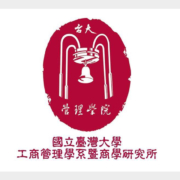Navigating Influence: Unpacking Bayesian Persuasion in Operation Management Practices
工商管理學系暨商學研究所
撰文者/商學研究所博士班 ANOOP REMANAN SYAMALA
The second session of Operation Management Seminar II, hosted by Prof. Jiun-Yu Yu, commenced with a significant contribution from Dr. Chia-Hui Chen, a distinguished professor and researcher from the Institute of Economic Research at Kyoto University, Japan. Conducted online on April 11th, the seminar provided deep insights into the intricate world of Information Design and Bayesian Persuasion, aiming to elucidate the mechanisms that drive decision-making and influence within organizational settings.
Dr. Chen’s presentation zeroed in on the crucial role of Bayesian Persuasion, a process designed to inspire actions and decisions by strategically curating information. Three seminal papers formed the backbone of this discourse. The journey began with a paper that probed the essence of motivation and the most effective methods to shape it toward desired outcomes. The central question of this exploration was how to fine-tune communication to optimize persuasion effectively.
The focus then transitioned to the second paper, which examined recommender systems as vehicles for social learning. The recommendations of others often influence our choices. Recommender systems, especially on online platforms, serve a dual purpose: they facilitate the discovery of new information and its dissemination to users. The study highlighted the challenge faced by potentially valuable products and startups that suffer from a lack of initial exposure, potentially leading to their premature decline. Additionally, the paper proposed that individuals who inform the recommender systems often fail to consider the benefits their recommendations confer on future users. As a result, the research explored how a recommender system might craft its policy to surmount this challenge.
The discussion culminated with a working paper titled “Overcoming Free-riding in Collective Experimentation,” extending the theme of social learning. Set against public health concerns and vaccine hesitancy during the COVID-19 pandemic, the paper depicted how a cautious ‘wait-and-see’ approach can delay adoption, leading to a surplus loss. The paper highlighted two significant aspects: the feedback-based mechanism and the extensive scale of anonymous interactions where participants do not observe the outcomes of experimentation. A critical issue identified was the challenge for governments to incentivize citizens, with information design becoming a potent strategy to tackle the free-riding problem.
The session emphasized the government’s imperative to deliver information to the public in a manner that is clear and precise to avoid free-riding problems. This significant stride in incorporating Bayesian persuasion into Operations Research/Management indicated a shift in a field not conventionally linked with the dynamics of information flow.
Participants left with a stirring call to action: Operations Management is evolving, characterized by rigorous mathematical modeling and an ongoing imperative for professional development and learning. To sum up, this seminar cast light on the subtleties of information design. It underlined the critical need for continued diligence and curiosity in the ever-evolving domain of operational strategies and influence.



